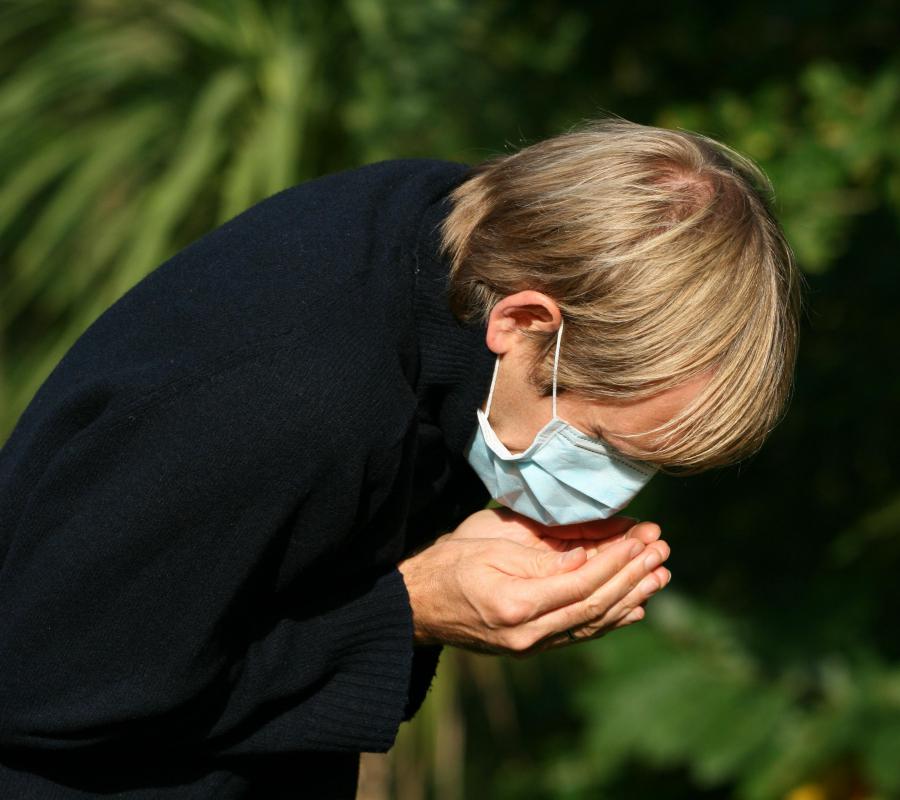At TheHealthBoard, we're committed to delivering accurate, trustworthy information. Our expert-authored content is rigorously fact-checked and sourced from credible authorities. Discover how we uphold the highest standards in providing you with reliable knowledge.
What is Pseudomonas Putida?
Pseudomonas putida is a type of gram-negative bacterium that is commonly found in water and soil, particularly around the roots of plants. It can protect plants from disease from other microorganisms. Its metabolism is very complex, and the bacteria can degrade a great variety of organic pollutants. There is commercial interest in utilizing it for this purpose. Normally the bacteria are considered to be safe, but there are a few cases of their having caused disease in people with compromised immune systems.
Pollutants that were formerly thought to be non-biodegradable, such as Styrofoam™, have since been found to be degraded by this organism. Due to the biological and chemical applications of these bacteria, the DNA sequences of a number of strains have been sequenced. They are closely related to Pseudomonas aeruginosa, an opportunistic pathogen of humans. Through sequencing, it was found that Pseudomonas putida lacked key genes that Pseudomonas aeruginosa uses to cause disease in humans. For instance, it cannot degrade cellular membranes or release toxins.

In the few cases where Pseudomonas putida has been found to be pathogenic in humans, it was among people who were already sick. Another common feature was that the bacteria were introduced on something that was supposed to be sterile. For instance, in one case, an anti-fog solution was contaminated with the bacteria. In others, unsterile catheters or similar devices were inserted into a person who had recently taken antibiotics.

Once in the body, Pseudomonas putida can cause systemic infections, such as bacteremia — an infection of the blood. Pneumonia or peritonitis are serious diseases that can be caused by this bacterial agent. It can also cause more localized infections, like sinusitis or urinary tract infections.
In general, Pseudomonas putida has been designated as a safe bacterium for use in the cloning of genes for bioremediation work. This involves the systemic use of the organism to degrade pollutants in water or soil. These bacteria have a very versatile metabolism, and can degrade an array of toxic chemicals, including gasoline components. Other strains can convert packing peanuts, made of polystyrene foam, into a biodegradable plastic. There is much research being conducted on the degradative abilities of this organism.

Pseudomonas putida is also important in maintaining plant health. It lives in most soils and associates with plant roots, where it frequently improves plant health. The organism also produces molecules that sequester iron from the area around the plant. This deprives fungi and other bacteria of a necessary nutrient, limiting their growth. By doing so, it can effect the biological control of some plant pathogens.

There are many avenues of research that utilize Pseudomonas putida for genetic engineering. Recombinant bacteria are being produced to degrade specific pollutants, and to deliver biopesticides to plant roots. They are also being used to express genes from Pseudomonas aeruginosa that may be involved in causing disease in humans. Researchers prefer conducting such experiments in Pseudomonas putida, since it is highly unlikely to cause disease in humans compared to Pseudomonas aeruginosa.
AS FEATURED ON:
AS FEATURED ON:
















Discussion Comments
Pseudomonas putida has been studied extensively by scientists for it's contribution to cleaning up pollutants.
Scientists hope someday to use organic synthesis, where the organic compounds can be synthesized, to hasten the process of ridding the world of certain pollutions.
Man is starting to take a closer look at the natural world when it comes to the world of science. There are many different things that happen in nature that man is trying to duplicate.
Bees have a way of maintaining an optimum temperature in their hive and recently some of these tactics have been attempted in actual human buildings. There are already dividends being realized in this attempt.
The way robots move now are crude and not very fluid. Recent research into spiders movement may create a whole new way of moving machines. Where a robot now uses a complex set of joints they may someday use a type of modified hydraulic system. The hydraulic system in a spider's leg has been thought of for a while as being a step down in evolution, but for a robot it could open new doors.
Post your comments